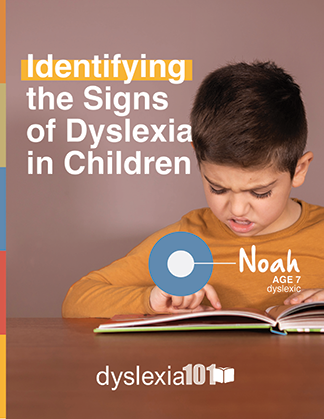Struggling with Dyslexia in Adulthood Is Challenging, But There Is Hope
Although a great deal of attention is paid to helping children with dyslexia, and even more attention is paid to celebrities who have overcome dyslexia, there is an overlooked population in the U.S. that feels the effects of dyslexia every day: adults
Some were diagnosed with dyslexia as children, but still encounter challenges with reading and writing in the workplace. Others dropped out of school due in part to their dyslexia and struggle to maintain meaningful employment. Still others were never diagnosed and may never have become successful readers.
According to Mayo Clinic, adults who struggle with dyslexia may experience any of the following difficulties:
- Struggles with reading silently or out loud
- Labored writing
- Misspelling
- Anxiety or avoidance of reading
- Difficulty retelling the events of a story
- And more
If these qualities echo your adult loved one’s experience, they may also experience barriers in aspects of their professional and personal life – and it’s possible to overcome them. Although there isn’t a “cure” for dyslexia, there are several ways to boost confidence and skills, including getting tested for dyslexia and seeking out a reputable dyslexia reading program.
Continue reading to find out how to find ways to help your loved one grow reading skills as an adult with dyslexia.
Options for Adults with Dyslexia Who Are Ready to Build Their Reading Skills
Depending on the extent of your loved one’s dyslexia, options are readily available to see a change in reading, writing, and communication skills.
If your loved one never learned to read, consider the following options:
- Free tutoring: Look for an adult literacy program in your area that has received funding to tutor adults in reading. These classes and tutoring programs are typically available in larger cities, but consider checking with your local library for the nearest organization. You can also search for a comparable program at a college or university, as education students may be available to volunteer as literacy tutors.
- The library: Your local library or community center may be able to connect you with a private tutor. Often, these tutors operate on a volunteer basis, much like a literacy program would provide.
- Resources online: YouTube and other websites offer free instructional videos for adults that can help you learn to read. Your loved one can also explore videos that are designed for a younger audience, but may still be useful, if they’re comfortable with it.
If your loved one is able to read, but experiences the aforementioned difficulties as reported by Mayo Clinic, you have options for helping to build their skills:
-
Go local: A local adult literacy program, library, or community center likely has information on free programs, including tutoring or classes, to help your loved one practice reading, writing, and communication skills. These programs aren’t only for those who aren’t able to read; it is also for those who want to gain more confidence.
-
Improve reading skills with an audiobook: Consider going on a trip to the bookstore or library to choose a book that you know your loved one will enjoy, and you feel confident they can read. Get both the audiobook and the print version. Listen to the audio version while you follow along with the words in the book.
A librarian can help you select books that increase reading skills, based on your loved one’s current comfort level. As your loved one continues to read, you’ll notice that they have more confidence and exert themselves less as a reader. Soon, your loved one might find they don’t need the audiobook.
-
Foster communication and social emotional skills: If your loved one feels their communication skills are the biggest challenge for them, research online videos that strengthen those skills, or ask them to try a community college course in public speaking. Perhaps they want to challenge themselves to give a presentation or report at work or try to engage in an activity they’d typically avoid, like speaking during a meeting.
This article on resilience from the International Dyslexia Association puts more emphasis on emotions, mindset, and willingness to grow as the biggest keys to helping readers reach their goals. This article stresses making a commitment to small, positive changes.
-
Invest in a proven method to improve reading: While the following suggestions may be helpful, it’s possible that your loved one requires a research-based analysis of their dyslexia and expert-level reading instruction to help them make bigger gains and confidently meet their goals.
Engaging with a proven test for dyslexia and reading instruction that has been used to benefit children and adults for decades is far more reliable than methods that can’t make the same claims.
What a Proven Method for Adults with Dyslexia Provides
The right program for adults will offer a wide range of benefits that will make growing as a reader convenient and effective.
Look for a program that offers the following:
- An analysis of reading needs that informs future instructional sessions.
- 100% virtual sessions on your loved one’s schedule without having to leave home.
- Individual sessions run by a reading instruction expert.
- Opportunities to check in and ask questions about progress.
- An affordable investment in your loved one’s growth as a reader.
Flexibility, affordability, and a customized, proven learning method may be the best bet as a busy adult who doesn’t have time to dabble in options that may not yield results.
Learn more about a dyslexia test and dyslexia reading program that fits the criteria above to see if research-based instruction for adults with dyslexia is right for your loved one.


